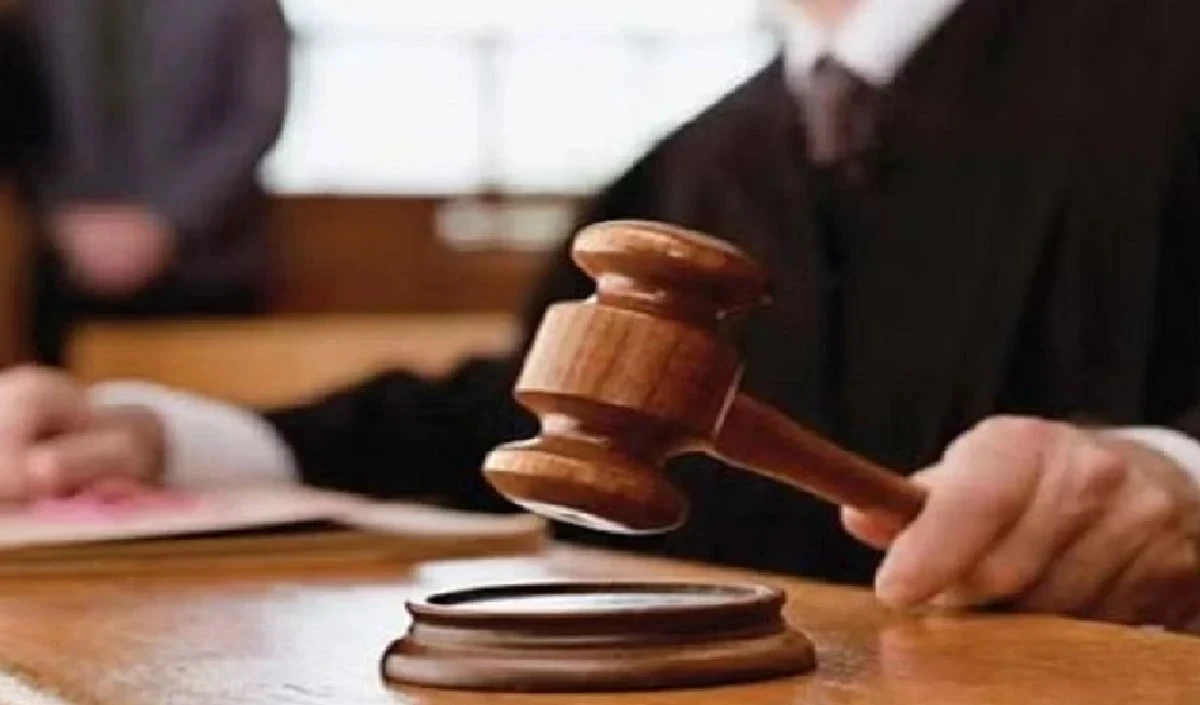It is very important for the judges to be independent to keep the independence of the judiciary intact in Indian democracy. But not making basic changes in the judiciary in view of the acts of certain judges while in prestigious positions, it is proving to be harmful for democracy as well. Therefore, the Yaksha is a question that who is finally guilty for the use of independence of the judiciary in India? And why do judicial administration or executive administration start flourishing in taking quick action against him? Even if you give up old things, the amount of action is going on against Justice JS Verma at the speed, it is a matter of serious concern for the entire constitutional system. This will promote people involved in corruption.
The question is the question that why does action not be seen against the common man in any case, why does it not appear against a particular man? Does the proverb of thief-chor cousin brother also know here? After all, why does our Parliament not make a clear and transparent law on these subjects? Parliament is the highest in our country or the Supreme Court, this subject is not important, but it is the discussion that why should be the delayed action against persons with corrupt conduct holding important positions in the legislature or judiciary.
Since both the legislature and the judiciary have misused their highest position, there should be a statutory system to reach a final decision through the Scholarship Council or Public Interest in Rare of the Rarerest Affairs with public interest or system.
In this context, Chief Justice of Supreme Court Justice BR Gavai, Chief Justice in Great Britain, in a boundary conference organized by the Supreme Court in Great Britain, is ignored for every enlightened person. He has said in two words that in the judiciary, corruption and misconduct have less confidence in the judiciary. Therefore, he emphasized that Judicry has not only to do justice, but it should also be seen as an institution that has the ability to tell the truth from power.
Needless to say that while the judiciary has an important place in strengthening Indian democracy, on the other hand, the direct/indirect role of the judiciary cannot be ruled out in hollowing out the roots of democracy. I am not saying this butThe essence of various judicial developments going on in this country is similar, which is a worrying thing.
If seen, Chief Justice of Supreme Court Justice BR Gawai, in his tone, has given both the praise and complaint of the judiciary, indirectly, trying to draw some Lakshman line for the judges, bureaucrats and politicians, they have also given some advice to them, which need to be understood and the best solutions to be found out of view.
Chief Justice of India BR Gawai made important remarks on the appointment of judges, saying that the government ignored the most senior judges twice as the final decision was that of the government at that time. This is the reason that the Chief Justice of India questioned the role of the executive in judicial appointments and described the National Judicial Appointments Commission Act as a threat to the independence of the judiciary and said that from thisFreedom of judges may be affected.
In fact, in the said Round Table Conference, Justice Vikram Nath, England and Wales Lady Chief Justice Bairness Carr and UK Supreme Court Judge George Legat in the presence of George Legat, Chief Justice of India Justice Gawai said that, ‘In India, a main issue of dispute between judiciary and executive is that what is the priority in judicial appointments? He said that till 1993, the final decision in the appointment of judges in the Supreme Court and the High Court was of the executive. This is the reason that during the said period, the executive ignored the judges ‘decision twice in the appointment of the Chief Justice of India, which was against the established tradition.’
It is noteworthy that the two judges who have been sidelined for the post of CJI are Justice Syed Jafar Imam and Justice Hans Raj Khanna. Where Justice Imam could not be assigned the top post in 1964 as he was suffering from health problems and the then Jawaharlal Nehru government assigned the post to Justice PB Gajendragarhkar. At the same time, Justice Khanna faced the displeasure of the Indira Gandhi government in 1977. Because when ADM Jabalpur vs Shiv Kant Shukla had to lose the post of Chief Justice only a few months after his disagreement decision in the case. Because in that case he ruled that fundamental rights cannot be suspended even during the national emergency. The same thing was passed on to the Indira Gandhi government.
According to the CJI, in response to this, the Supreme Court explained the constitutional provisions related to the appointment of judges in its decisions in the years 1993 and 1998 and established that the Chief Justice of India will form a collegium in collaboration with four senior judges, which would be responsible for recommending appointments in the Supreme Court. Chief Justice Justice Gawai further said that the Supreme Court had canceled the National Judicial Appointments Commission Act in 2015. Because this Act has weakened the independence of the judiciary by giving priority to the executive in judicial appointments. He even said that the collegium system can be criticized, but no solution should come at the cost of judicial freedom.
At the same time, Chief Justice Justice Gawai said that a judge creates moral concerns by taking government posts, or resigning and resignation. India has a certain retirement age for judges. If a judge takes another appointment with the government immediately after retirement, or resigns from the back to contest, it creates significant moral concerns and invites public investigation. Because then people start feeling that the judiciary is not independent. They feel that the judges are trying to take advantage of the government.
It is noteworthy that there has often been a dispute between the government and the Supreme Court regarding the collegium system. Meanwhile, the important remarks made by CJI Justice BR Gawai about the appointment of judges from the British land are clear, but it is also necessary to consider what steps he has taken to stop judicial corruption. However, what Chief Justice BR Gavai has reminded of the mistakes of the Congress by taking the names of Nehru and Indira Gandhi may be a meaningful initiative to please the BJP. At the same time, he has also given advice to the judges and said that the judges should remain independent in any case.
Therefore, it would be better if Chief Justice of the Supreme Court Justice Gawai ordered to constitute a Judicial inquiry police cadre, which will keep an eye on the corruption of the judiciary and will arrest any corrupt person within 24 hours and start legal action by putting them in a special jail. Whether you believe it or not, institutional corruption is being promoted in the lower courts, High Court and Supreme Court with the connivance of judges and advocates, which has fallen the reputation of the judiciary and reduced credibility. The executive and legislature is not interested in stopping this because they themselves are great! The exceptions are in every place, but in a minority, extremely low.

